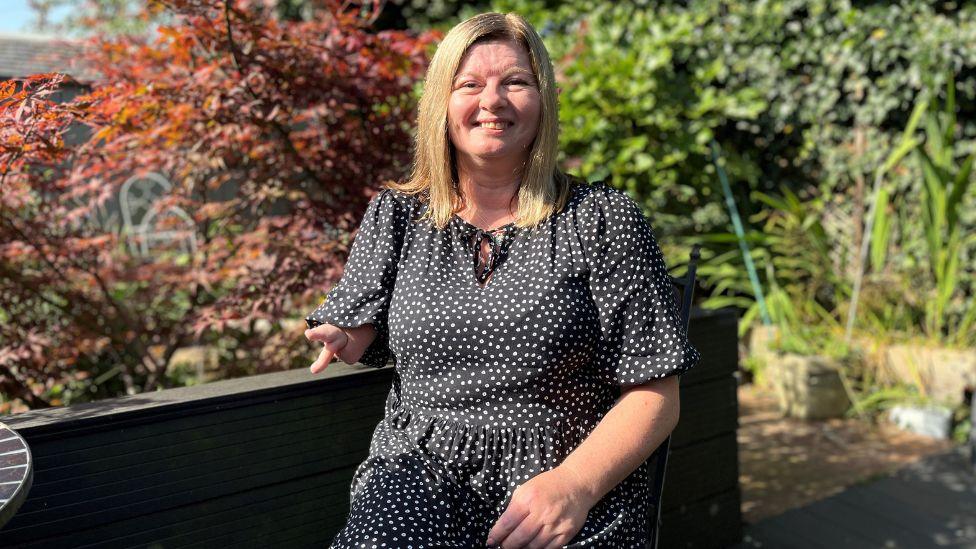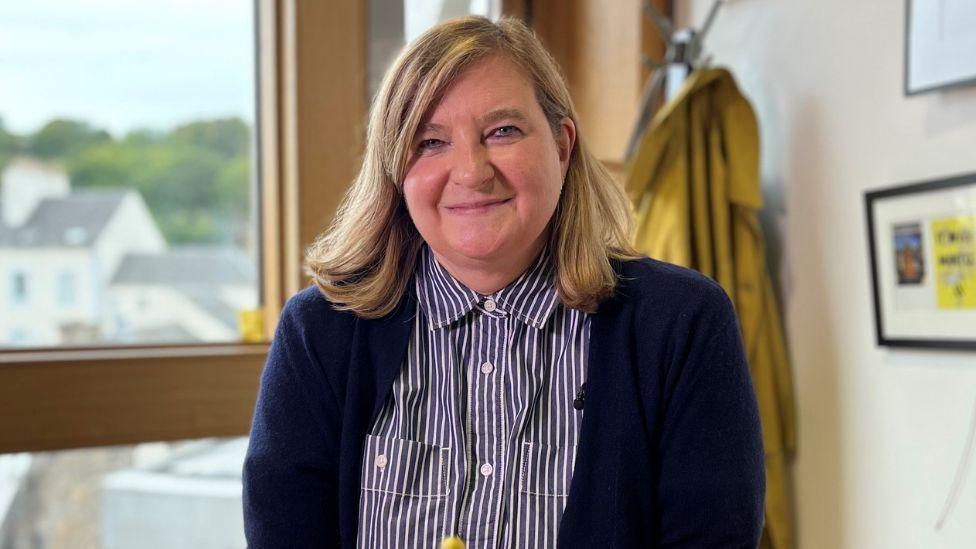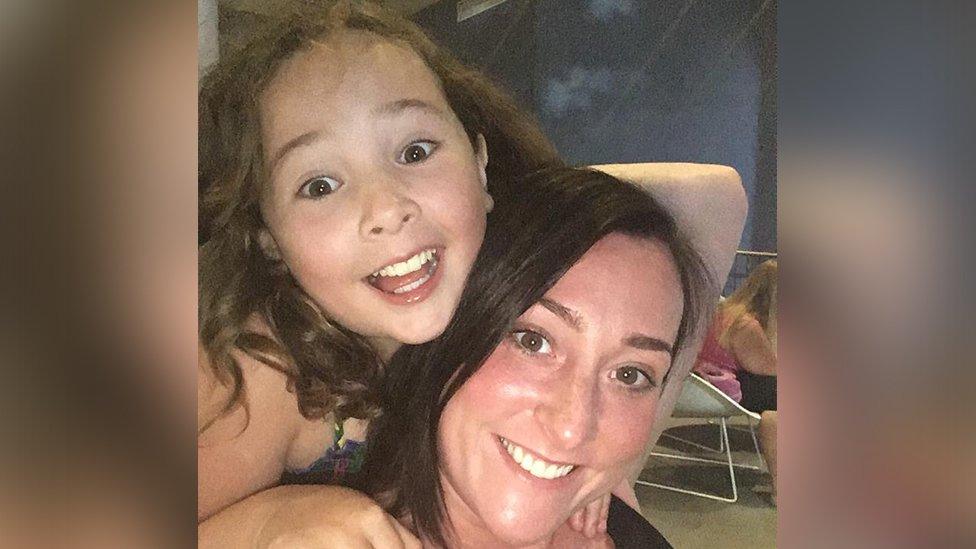MSPs to vote on patient safety commissioner plan
- Published

Sammy Paton says the new commissioner must have the power to prevent future scandals
MSPs are set to vote on a new law to establish a patient safety commissioner.
The bill to create an "independent public advocate" for patients will go through its final stage on Wednesday.
Public Health Minister Jenny Minto has said the commissioner would be able to challenge the healthcare system and ensure patient voices were heard.
The Scottish government has been told the new watchdog must have the power to prevent future scandals.
Sammy Paton was born with multiple disabilities including skeletal dysplasia, or short limbs.
She had undergone 16 operations by the time she turned 16 and now relies on a wheelchair and stairlift.
A few years ago she discovered her condition could be linked to a hormone pregnancy test called Primodos.
It was used by more than one million women in the UK in the 1960s and 1970s before being removed from the market in 1978.
It was later linked to birth defects, miscarriages and stillbirths.
Claims for damages by more than 170 people who say they were affected by the pregnancy test drugs were thrown out by a High Court judge in May.

Claimants stand outside the High Court ahead of a hearing in the Primodos legal action in May
Sammy said her mum contacted her upset after seeing a documentary about the pregnancy test.
"She's just been eaten with guilt since she realised the link," she told BBC Scotland News.
"I just find it pretty disgusting that a medication that was supplied by an NHS GP has done damage.
"There's all these adults that are now in their 50s, 60s that are really struggling. I mean really struggling."
Sammy said the Patient Safety Commissioner must have "teeth" to prevent future medical mishaps, such as the Thalidomide scandal.
"We're now in 2023 and it's not just medicines from the 60s and 70s. Medicines now are causing damage."
'Really important role'
In 2020, former UK Health Minister Baroness Julia Cumberlege published a review into the safety of medicines and medical devices like Primodos, transvaginal mesh and the epilepsy drug sodium valproate.
She told the House of Lords: "Warnings ignored. Patients' concerns ignored. A system that seemed unwilling or unable to listen let alone respond, unwilling or unable to stop the harm."
Her findings led to the recommendation for a patient safety commissioner.
Speaking ahead of the vote on the Patient Safety Commissioner for Scotland Bill, external, Ms Minto said the watchdog would listen to patients' views.
"I think it's a really important role for us to have in Scotland," she said.
"There's been a number of inquiries or situations where the patient's voice really needs to be listened to and that's what a patient safety commissioner will do."

Public Health Minister Jenni Minto says the commissioner will help ensure patients' voices are heard
The Scottish government has said the commissioner will be an "independent champion" for patients, working alongside healthcare providers.
It is hoped the commissioner will "hold healthcare providers to account in their responsibility to listen to patients and support them to make improvements".
They will also be given the power to lead formal investigations into potential systemic safety issues, with powers to require that information is shared with authorities.
Irene Oldfather is from the Health and Social Care Alliance, which has worked with women fitted with transvaginal mesh.
She told BBC Scotland News: "What we would hope is that the patient safety commissioner and the advisory group around that is able to look at the data being collected, is able to look at the complaints systems and that we're able to gather that evidence so that women don't feel that they have to bang their heads against a brick wall when they are actually in so much pain."

Milly Main died after contracting an infection at the Royal Hospital for Children
Scottish Labour wants to include the principles of "Milly's Law" in the legislation.
Milly Main, 10, died after catching an infection at the Queen Elizabeth University Hospital in Glasgow in August 2017.
Jackie Baillie, Scottish Labour deputy leader, said the commissioner must be able to investigate major incidents like that.
She told BBC Scotland News: "This package of measures is important not just because it gives effect to Millie's Law but it's a really important step in tipping the balance of power back towards patients rather than to hospital managers and it resets the way the NHS should be."